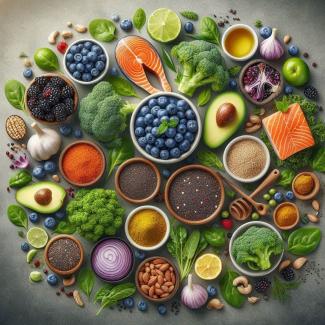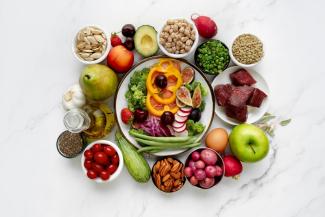
Slowing down the aging process is a goal many people have in order to maintain their health, vitality, and youthful appearance. While aging is a natural part of life and cannot be stopped entirely, there are several life hacks and strategies that may help you improve your health, well-being, and reduce the negative effects of aging:
- Balanced Diet:
- A well-balanced diet is essential for slowing down the aging process. Include a variety of fruits, vegetables, whole grains, lean proteins (such as poultry, fish, and legumes), and healthy fats (like nuts, avocados, and olive oil) in your diet.
- Limit your intake of processed foods, sugar, and trans fats.
- Regular Exercise:
- Regular physical activity has numerous health benefits and can help maintain muscle mass, improve cardiovascular health, increase strength and stamina, and boost overall well-being.
- Incorporate aerobic exercise (e.g., walking, running, swimming), strength training, and flexibility exercises into your weekly routine.
- Adequate Sleep:
- Quality sleep is crucial for the body's repair and rejuvenation processes. Aim for 7-9 hours of uninterrupted sleep each night.
- Establish a regular sleep schedule and create a comfortable sleeping environment.
- Stress Management:
- Chronic stress can accelerate aging. Practice stress-reduction techniques such as meditation, yoga, mindfulness, or deep breathing exercises.
- Engage in activities you enjoy and make time for relaxation.
- Hydration and Skin Care:
- Stay well-hydrated by drinking enough water throughout the day. Proper hydration can help maintain healthy skin.
- Use sunscreen to protect your skin from harmful UV rays, which can cause premature aging. Also, moisturize your skin regularly to keep it hydrated.
- Limit Harmful Habits:
- Quit smoking if you smoke, and limit alcohol consumption. These habits can contribute to premature aging and various health issues.
- Mental and Social Engagement:
- Stay mentally active by challenging your brain with puzzles, learning new skills, or pursuing hobbies.
- Maintain social connections and engage in meaningful relationships. Social interaction can have positive effects on mental and emotional well-being.
- Regular Health Check-ups:
- Visit your healthcare provider for regular check-ups and screenings to monitor your health and catch potential issues early.
- Supplements and Antioxidants:
- Consider taking supplements or antioxidants like vitamins C and E, coenzyme Q10, and resveratrol, which may have anti-aging properties. Consult with a healthcare professional before starting any supplements.
- Stay Positive:
- Maintain a positive outlook on life. Studies suggest that having a positive attitude can contribute to a longer, healthier life.
It's important to note that individual results may vary, and genetics also play a role in the aging process. What works for one person may not work for another. It's advisable to consult with a healthcare provider or a registered dietitian to create a personalized plan for slowing down the aging process that suits your specific needs and goals.






